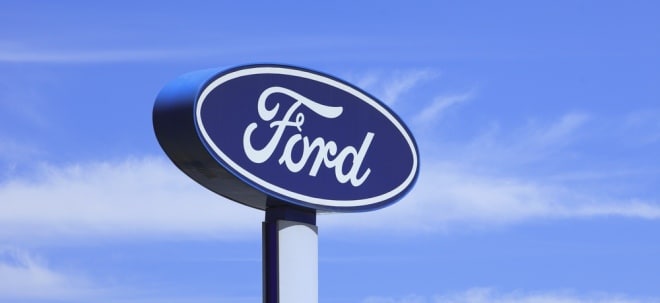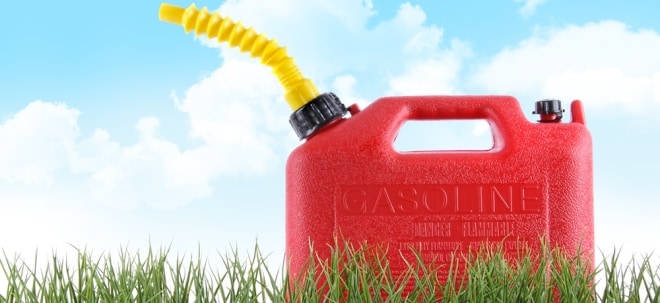Pipe Insulation Market worth $7,195.9 million by 2030 - Exclusive Report by MarketsandMarkets™
DELRAY BEACH, Fla., July 1, 2025 /PRNewswire/ -- The report "Pipe Insulation Market by Material Type (Rock wool, Glass wool, PU R /PIR foam, Phenolic foam, Elastomeric foam), by Application (Industrial, Oil, Gas, District Energy Systems, Building & Construction), and Region - Global Forecast to 2030", pipe insulation market size was estimated to grow from USD 5,265.4 million in 2024 to USD 7,195.9 million by 2030, at a CAGR of 5.4% between 2025 and 2030.

Browse in-depth TOC on "Pipe Insulation Market"
150 – Tables
53 – Figures
210 – Pages
Download PDF Brochure: https://www.marketsandmarkets.com/pdfdownloadNew.asp?id=263389325
The use of pipe insulation is gaining popularity due to its ability to enhance energy efficiency, reduce emissions, and extend the lifespan of infrastructure across various sectors. As regulations on industrial processes impacting the environment and energy performance of industrial buildings become more stringent, industry players are turning to high-performance insulation materials that are also sustainable. Recent pipe insulation products and systems help prevent energy waste, manage condensation, and minimize the carbon footprint of heating and cooling systems. Materials such as mineral wool, glass wool, and bio-based foams have become central to sustainable construction and industrial warehouses, as they promote energy savings and the safety of building use. The world is gradually embracing greener construction materials and low-emission systems, which further underscores the importance of effective pipe insulation. Recyclable, low-VOC, and high-performance insulation products are being adopted by numerous manufacturers to comply with global energy codes and meet customer demands.
In 2024, the rock wool material type accounted for the second-largest share in terms of value of the pipe insulation market.
In 2024, the rock wool material type segment holds the second-largest share of the pipe insulation market because of its high thermal resistance, fire protection, and acoustical insulation properties. Rock wool (or stone wool), made from natural volcanic rock, is non-combustible, very durable, and resistant to moisture, and therefore finds its strongly demanding uses in industry, commerce, and domestic purposes. Thermal efficiency at elevated temperature provides it with a strong advantage in applications like power generation, petrochemicals, and heavy manufacturing industries, where fire safety and insulation capability are important. The environmental friendliness profile of rock wool is also a factor in its universal use. It can be prepared frequently out of the highly available natural resources, as well as recycled resources, and can be reused or recycled at the end of its functional life. As the world focuses on sustainable and energy-efficient building practices, rock wool can easily be incorporated into the green building standards and certifications, including LEED and BREEAM. It also has a long lifetime and minimal maintenance needs, which further decreases the lifecycle cost, making it an economical solution in the long run. The flexibility and high-performance properties of the material mean it can be used in both hot and cold piping systems where safety, longevity, and the environment are concerns. All these benefits make rock wool a material of choice, which guarantees its firm market share in 2024.
Request Sample Pages: https://www.marketsandmarkets.com/requestsampleNew.asp?id=263389325
In 2024, the oil application segment was the third largest in the pipe insulation market in terms of value.
The oil application segment accounted for the third-largest share in the pipe insulation market in 2024 because insulation is paramount in ensuring operational efficiency, safety, and energy conservation in oil extraction, refining, and distribution procedures. The oil industry is associated with huge pipeline networks that, at high and low temperatures and under different environmental conditions, transport crude and processed oil. Wrapping these pipes with insulation is necessary to avoid loss of heat and to ensure the efficiency of the flow, as well as to eliminate the possibilities of such problems as the wax appearance or freezing in case of colder weather. Insulation of pipes also aids in safeguarding equipment and personnel by bringing about stability of surface temperatures as well as reducing the chances of burns or accidents. Thermal insulation is used in high-temperature areas, particularly in refineries, to eliminate energy loss, which is directly proportional to saving money and enhancing system efficiency. Due to the increasing need to limit the carbon footprint and comply with strict new environmental standards, oil companies are turning to sophisticated and long-lasting insulation materials. Moreover, numerous nations are spending on the modernization of old oil facilities and increasing capacity with new oil pipeline ventures, which creates constant demand for high-quality insulation systems. Another driver of the growth of the segment includes the rising energy consumption globally, especially in emerging economies. All these factors have led to the oil segment having a robust share in the entire pipe insulation market.
Central & Western Europe was the fourth-largest pipe insulation market in terms of value in 2024.
2024, Central and Western Europe represented the fourth-largest share of the global pipe insulation market, underpinned by its mature industrial base, advanced infrastructure, and strong regulatory framework focused on energy efficiency and sustainability. The widespread adoption of pipe insulation across new construction and retrofitting projects—spanning residential, commercial, and industrial sectors—is largely driven by stringent energy performance mandates.
Request Customization: https://www.marketsandmarkets.com/requestCustomizationNew.asp?id=263389325
European Union policies, notably the Energy Performance of Buildings Directive (EPBD) and initiatives under the European Green Deal, continue to promote the deployment of advanced insulation materials to achieve improved energy efficiency and reduced greenhouse gas emissions. These policy measures are fostering increased demand for thermal insulation in both hot and cold piping systems. The region's sophisticated infrastructure—including extensive district heating networks and high-performance industrial processing units—requires reliable and efficient insulation solutions to optimize thermal performance and operational efficiency. This regulatory and infrastructural alignment positions Central and Western Europe as a stable and strategically important market within the global pipe insulation landscape.
Central & Western Europe is the location of some major players in the insulation production and technology development, which facilitates the domestic supply and helps increase the product availability. The increasing awareness by the end-users concerning the advantages of insulating pipes, which include lowered energy costs, augmented operating performance, and elevated fire security, remains a driver of market demand. Together with a high level of attention to sustainable construction, these facts lead to the high contribution of the region to the world market of pipe insulation in 2024.
The key players profiled in the report include Saint-Gobain S.A. (France), BASF SE (Germany), Johns Manville (US), Owens Corning (US), Kingspan Group PLC (UK), Rockwool A/S (Denmark), Covestro AG (Germany), Huntsman Corporation (US), Armacell (Luxembourg), and Knauf Insulation (US), among others.
Get access to the latest updates on Pipe Insulation Companies and Pipe Insulation Market Size
Browse Adjacent Market: Foam and Insulation Market Research Reports & Consulting
Related Reports:
Insulation Products Market - Global Forecast to 2029
Building Thermal Insulation Market - Global Forecast to 2028
About MarketsandMarkets™
MarketsandMarkets™ has been recognized as one of America's Best Management Consulting Firms by Forbes, as per their recent report.
MarketsandMarkets™ is a blue ocean alternative in growth consulting and program management, leveraging a man-machine offering to drive supernormal growth for progressive organizations in the B2B space. With the widest lens on emerging technologies, we are proficient in co-creating supernormal growth for clients across the globe.
Today, 80% of Fortune 2000 companies rely on MarketsandMarkets, and 90 of the top 100 companies in each sector trust us to accelerate their revenue growth. With a global clientele of over 13,000 organizations, we help businesses thrive in a disruptive ecosystem.
The B2B economy is witnessing the emergence of $25 trillion in new revenue streams that are replacing existing ones within this decade. We work with clients on growth programs, helping them monetize this $25 trillion opportunity through our service lines – TAM Expansion, Go-to-Market (GTM) Strategy to Execution, Market Share Gain, Account Enablement, and Thought Leadership Marketing.
Built on the 'GIVE Growth' principle, we collaborate with several Forbes Global 2000 B2B companies to keep them future-ready. Our insights and strategies are powered by industry experts, cutting-edge AI, and our Market Intelligence Cloud, KnowledgeStore™, which integrates research and provides ecosystem-wide visibility into revenue shifts.
To find out more, visit www.MarketsandMarkets™.com or follow us on Twitter , LinkedIn and Facebook .
Contact:
Mr. Rohan Salgarkar
MarketsandMarkets™ INC.
1615 South Congress Ave.
Suite 103, Delray Beach, FL 33445
USA: +1-888-600-6441
Email: sales@marketsandmarkets.com
Visit Our Website: https://www.marketsandmarkets.com/
Logo: https://mma.prnewswire.com/media/1868219/MarketsandMarkets_Logo.jpg
![]() View original content:https://www.prnewswire.com/news-releases/pipe-insulation-market-worth-7-195-9-million-by-2030--exclusive-report-by-marketsandmarkets-302495395.html
View original content:https://www.prnewswire.com/news-releases/pipe-insulation-market-worth-7-195-9-million-by-2030--exclusive-report-by-marketsandmarkets-302495395.html
SOURCE MarketsandMarkets

